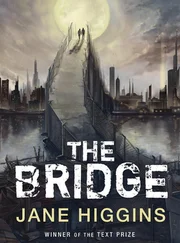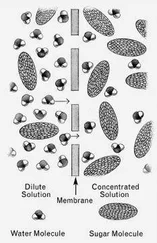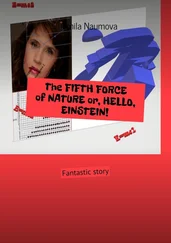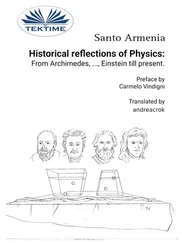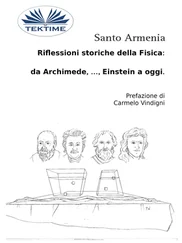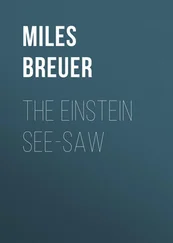Steve frowned. He’d envisioned Preston as a ladies’ man, and this didn’t seem to fit. Was Alice something more than a casual conquest? He needed to know more about the bastard. “How do you explain the blank credit record before 1987 and the lack of an educational history?” he asked. “Even if he moved back to Texas from out of state, shouldn’t there be some paper trail of his previous credit cards and bank accounts?”
“Interesting question,” said Weatherford. “Marquis Who’s Who said that he declined to write a biography for them. Perhaps he did return to the United States from Europe, but when we see a blank like that, it usually means something else. Usually the person in question is either in the federal witness protection program or has changed his name and started over for some other reason.”
“Maybe he has a prison record,” said Steve, “or has drug money. Perhaps he absconded with somebody else’s money and is hiding out.”
“I doubt it,” said Weatherford. “Preston’s lifestyle has been too conspicuous for someone who’s in hiding. His picture was in BusinessWeek a few weeks ago.”
“Hmm,” said Steve. “Maybe he had plastic surgery.”
“Possible,” said Weatherford. “He certainly looks much younger than the age thirty-three his birth certificate would indicate. If I hadn’t seen it myself, I’d say he was in his mid-twenties.”
“I don’t suppose you’ve tried running a fingerprint check on him,” Steve said.
“I don’t know if you guys in Florida can get away with doing such things, but the Houston Police Department is not terribly receptive to reporters who want them to run fingerprint checks through their forensic database system in pursuit of a story. Besides, I don’t have a sample of Preston’s fingerprints.”
After making arrangements to keep in touch with Weatherford, Steve locked up the campaign office and pedaled to the rooming house where Alice had lived. He knew she had paid up the rent for the summer, even though she was away. He rang the doorbell, and an older woman opened the door.
“Hello, Mrs. Mitchell,” he said. “I’m Steve Brown, Alice’s friend.”
“Oh yes,” she said. “How is Alice? We’ve missed her.”
“She’s working in Washington, D.C., right now, and she’s doing fine,” Steve said. “She just called and asked if I could find something that she left in her room and send it to her. I’d really appreciate it if you could let me in.”
The woman opened the room for him, then left. Steve put on a pair of light gloves and began to search the drawers and the bookshelf. He found nothing of interest. Finally he took a flashlight and magnifier from his pocket and walked to the bathroom.
When Steve was thirteen, he had for a time been obsessed with the techniques of finding and analyzing fingerprints. He’d read many books on the subject and assembled his own fingerprint kit with a flashlight, a magnifying glass, ruled sheets of paper, a black stamp pad, tiny paintbrushes, talcum powder, and clear plastic tape. He had taken and analyzed the fingerprints of his family and friends. He’d memorized all the fingerprint variations, the whorls, arches, overhand loops, and learned the line-counting techniques used to convert a given print pattern to a set of numbers used in computer database searches.
Now he shined the flashlight at an oblique angle to Alice’s bathroom mirror and used the magnifier to look closely at the surfaces near the mirror’s edges. Clear fingerprints were visible there, undoubtedly Alice’s. All had a characteristic whorl pattern. He used face powder from a drawer to dust some of the glass and plastic bottles from the medicine cabinet. They bore same whorl pattern.
Returning to the main room, he walked to a corner containing a microwave and small refrigerator. Against the wall was a cabinet containing china and glassware. He was sure that Preston bastard had been here several times, particularly on the night Alice had left. He opened the cabinet and examined each glass closely.
Most of the glasses were clean. A few had clear whorl fingerprints on their surfaces. One glass, however, bore the traces of fingerprints that were distinctly different, with an overhand loop pattern unlike anything he’d found in the bathroom.
He considered this. Preston must have drunk from this glass while he was here, then washed it, and put it away. Or perhaps the prints belonged someone else altogether. What the hell, it was worth a shot.
He carefully wrapped the glass in tissue, placed it in a paper bag, clipped the bag to the back of his bicycle, and pedaled back to the Perot office.
“You’re absolutely sure it was a break-in?” asked the policeman. The nameplate on his uniform read cable. “Couldn’t this have been done by one of your volunteers? Maybe one who forgot to tell you?”
“No,” said Steve. “We gave out office keys freely to our volunteers, since people worked here at all hours. And, as you can see, the door was jimmied.”
Officer Cable nodded. “So you’re missing some files, a cash-box containing about two hundred and fifty dollars, and a bottle of Scotch whisky. How important were the files? This sounds a bit like that Watergate thing.”
“The files were confidential and sensitive,” said Steve. “Contributors lists, investigative reports, privileged correspondence… They might have been valuable to the opposition, except that Perot has now dropped out of the race. The file cabinets, desks, computers, and almost everything else had been cleared out of the office already. We’re giving up the building lease in a couple of days. I’d been saving the Scotch for a celebration, but as it turned out, we never had much to celebrate.”
Cable nodded, then looked closely at the drinking glass on the desk. It had a slight brown residue in the bottom and smelled of stale liquor. “So the timing is peculiar, but this might have been a politically motivated break-in,” he said. “The thief wasn’t very professional. He must have helped himself to a quick drink before he left. That’s good for us, because it looks like he left us a clear set of fingerprints on the glass.”
Steve smiled and nodded. “I hope they help you catch the bastard,” he said.
Steve waited three days, then called Officer Cable. “Any progress on our break-in?” he asked.
“Glad you called, Mr. Brown,” Cable said. “I had a feeling that your break-in might be like that Watergate thing, so I pulled out all the stops. We faxed the prints to Washington and asked the FBI to check them.”
“What did they find?” Steve asked.
“It’s strange,” said Cable. “We got a positive match to the prints from the FBI database. It pulled up the records of a guy named George A. Griffin. He’s not a criminal, though, he’s a scientist. FBI had his prints because while he was a student at MIT many years ago he had a high-security summer job with a Boston military contractor. We started with the contractor and tracked down his current address. It was at the CERN lab in Switzerland, so we got the Geneva office of Interpol to check on him. Griffin is now living in France near the Swiss border. It’s very clear that he’s not the person we want, though. He was giving a speech at a physics meeting at CERN in front of two hundred people at the exact time of your break-in. Your burglar couldn’t have been him. Guess there must have been some computer screwup in the FBI’s identification system.”
“Strange,” said Steve. “But that name sounds familiar. Out of curiosity, do you have this Griffin person’s birthdate?”
“Sure do,” said Cable. “He was born in Milwaukee, Wisconsin, on July 25, 1959.”
ON ELECTION EVE THE GRAND BALLROOM OF THE LITTLE Rock Hilton was filled to capacity. Two walls were covered with large multiple television images, as the polls began closing across the continent and networks reported results and projections. Alice sat with George and Roger at a reserved gold area table in the roped-off part of the room where campaign managers and party officials could sit and chat with major contributors like George.
Читать дальше


